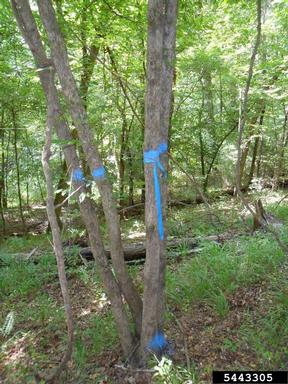Author: Ian Stone – Forestry Extension Agent Walton County
Selecting a consulting forester is often a major decision for small to large private landowners engaged in forest management and enterprises. Consulting foresters provide technical forestry assistance in all aspects of forest management. These professionals can assist landowners by identifying goals and needs and then apply forestry expertise to meet these needs and goals. Consulting foresters are professionals who provide their services for a fee; much like lawyers or engineers. Consulting foresters provide multiple services with various fee structures which can be provided on an hourly, per acre, one-time, or percentage. For example, a herbicide treatment would often be on a per acre basis, while a timber sale would often be done on a percentage. A landowner should always have a consultant provide a scope of work along with the fee structure and estimate. It is advisable that a landowner consult several foresters or firms to compare services and fees before making a selection.

Streamside Management Zone (SMZ) marked prior to harvest so it is clear to the landowner and logger. This service is often performed by a consulting forester as part of timber sale preparation.
(Photo Credit: David Stevens, Bugwood.org Image# 5443305)
Consulting foresters are highly skilled professionals with extensive knowledge in many areas. Examples of required areas of knowledge are timber volume estimation and appraisal, forest management, tree planting and reforestation, prescribed fire, wildlife and habitat management, taxation, estate planning, forest treatment such as mechanical, herbicide, fertilization, and many more. Most consultants are well versed in all aspects of the forestry profession, but often have one or two areas of specialization. A landowner should discuss the services and credentials a forestry consultant or firm provides and select on that best fits their unique needs.
Many states require consulting foresters to become registered or certified through a professional certification board. Florida, however, is an exception to this which means landowners in Florida should thoroughly examine the forester’s professional credentials. Landowners should select a forester with the skills and credentials they require. The two largest professional organizations that set professional expectations for foresters are the Society of American Foresters (SAF) and the Association of Consulting Foresters (ACF) Examples of what to look for in credentialing are as follows:
- A 4-year bachelor’s degree in forestry or a related field; especially form an SAF accredited university forestry program
- Registration or certification in another state or nationally through the SAF Certified Forester
program
- Membership in professional forestry organizations such as ACF or SAF, along with similar
organizations such as Tree Farm, Florida Forestry Association, or Forest Landowners Association
- The ability to clearly communicate with the client and others. Ask for samples of contracts, a
written quote, an in-person meeting, and references from other landowners
- Professional integrity, honesty, and a commitment to ethical practice
Landowners can find listings of Consulting Foresters and firms in their area through multiple sources.
The Florida Forest Service (FFS) maintains an online list of consulting foresters through the FFS Vendor Database (Florida Forest Service Vendor Database (fdacs.gov)).
Landowners can find lists of registered foresters through the Alabama and Georgia boards of forestry. Most consultants close to state boundaries practice in multiple states. In addition, SAF and ACF maintain online listings of consulting foresters and members at large.
Additional Helpful Websites for Locating a Consulting Forester in the Panhandle-
Association of Consulting Foresters- Home (acf-foresters.org)
Alabama Board of Registered Foresters- ASBRF (alabama.gov)
Society of American Foresters- Find a Certified Professional (eforester.org)
References
Article adapted and paraphrased from:
Demers and Long, Selecting a Consulting Forester. Publication: SS-FOR-16 University of Florida-IFAS
Extension, EDIS
Alabama Board of Registered Foresters, Website-https://www.asbrf.alabama.gov/ Last Accessed
07/22/2022
- Rattlesnakes on Our Barrier Islands; Part 5 – Reproduction - January 12, 2026
- Rattlesnakes on Our Barrier Islands; Part 4 – Thermoregulation - December 29, 2025
- Rattlesnakes on Our Barrier Islands; Part 3 – Envenomation - December 22, 2025
